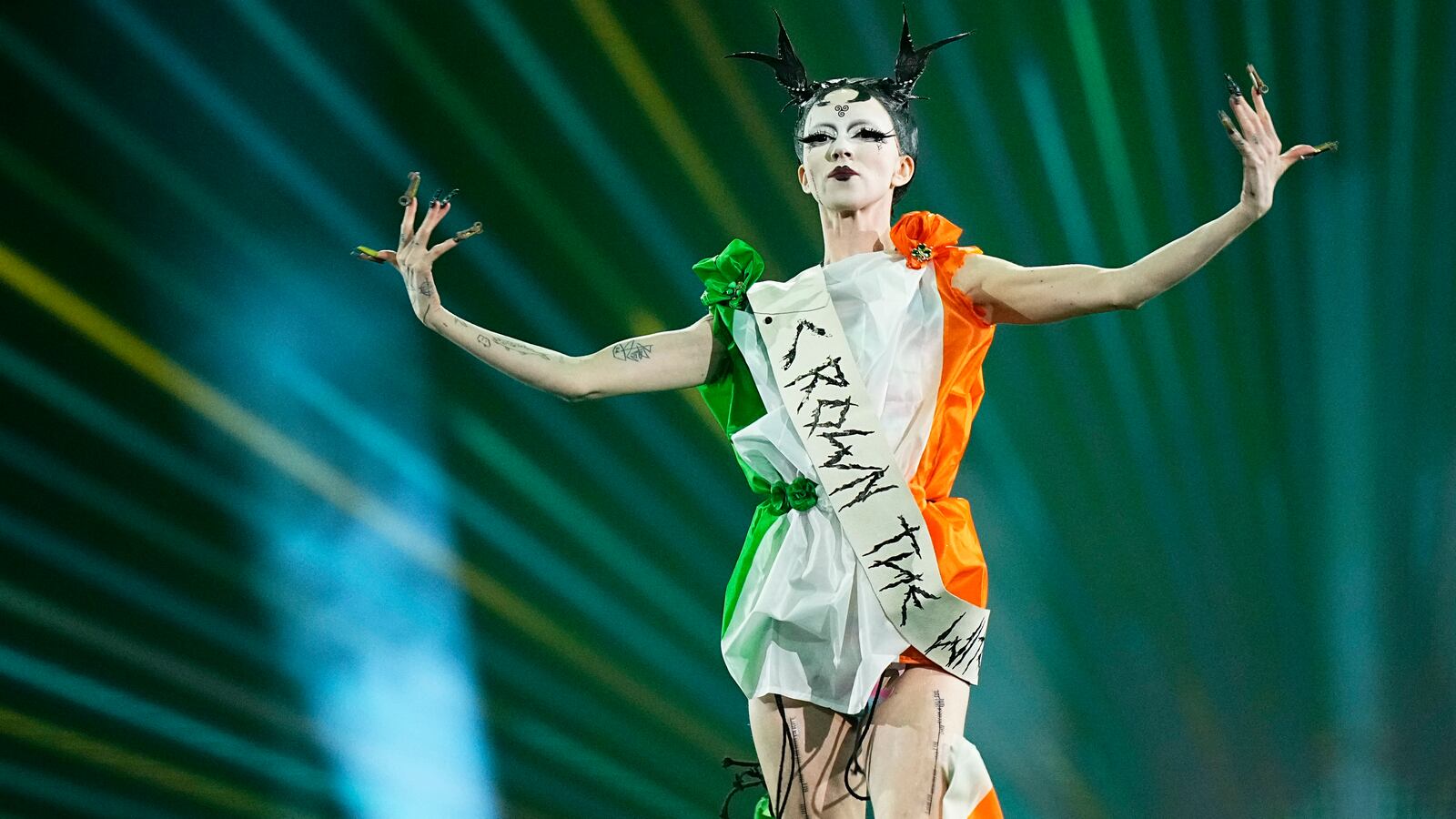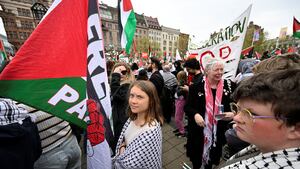It wouldn’t be Eurovision without a little controversy, but this year’s Song Contest was on another level.
If the reports of backstage tension between delegations weren’t enough to overshadow the 68th installment of the competition, then a nasty fight over Israel’s inclusion and the shock disqualification of the Netherlands’ contestant over an allegation of intimidation certainly were.
Now that the dust has settled and Switzerland’s Nemo has celebrated their victory, organizers are addressing the chaos.
“We regret that some delegations at the Eurovision Song Contest in Malmö didn’t respect the spirit of the rules and the competition both onsite and during their broadcasts,” the European Broadcasting Union told the BBC. “We spoke to a number of delegations during the event regarding various issues that were brought to our attention.”
The EBU said its governing bodies would work with delegation heads to “review” the alleged incidents troubling the road to the competition “to move forward in a positive way and to ensure the values of the event are respected by everyone.”
Contestants arrived in the Swedish city of Malmö to a politically charged atmosphere, with thousands of pro-Palestinian protesters gathering in the city center on Saturday to decry the EBU’s decision to clear Israel for competition back in March. Critics of the move have pointed out that organizers appeared to be applying a double standard, with Russia having been banned in 2022 over the Ukraine invasion.
Marching in Malmö, demonstrators waved Palestinian flags and chanted “Eurovision—united by genocide.” Several dozen were detained and “hauled away” as police used pepper spray to disband the gathering, Reuters reported from the scene.
Some booing was heard during the competition as the Israeli contestant, Eden Golan, took to the stage. (She was allowed to compete only after changing some of the lyrics to “Hurricane,” originally “October Rain,” a power ballad about Hamas’ Oct. 7 attacks.) But the jeers were largely drowned out by cheering and applause, and Golan proved popular, going on to finish fifth.
Though none of the contestants joined in the protesters’ calls to boycott the competition, several signed a joint statement calling for a ceasefire in Gaza. Others appeared to chafe at Golan’s presence, with Greece’s Marina Satti yawning and pretending to fall asleep as she spoke during a Thursday night press conference.
When the conference’s moderator told Golan she did not have to answer a question about her presence potentially posing a danger to the contest, the Netherlands’ Joost Klein broke in to loudly demand: “Why not?”
The strained international relations reached a fever pitch with a number of incidents involving Ireland’s Bambie Thug, who has been vocal about their support for Palestine, up to the point of clashing with the EBU over a costume choice to wear body paint reading “ceasefire” and “freedom for Palestine” in medieval script. (Other contestants were able to successfully smuggle pro-Palestinian messages onto the stage, like Portugal’s Iolanda, who painted keffiyehs on her nails.)
On Saturday, Bambie accused Israel’s public broadcaster of repeatedly “[inciting] violence” against them. The BBC reported that, during their performance in the first semi-final, a commentator on the Kan network had noted that Bambie had “spoken negatively about Israel” and told viewers to “prepare your curses.”
“We brought it up to the EBU,” Bambie said at a press conference after the grand final, according to The Irish Times. “They said they’d follow up.”
Earlier that day, Bambie said they had been forced to skip their final dress rehearsal after an unspecified “situation” required “urgent attention” from organizers. “The EBU have taken this matter seriously and we have been in a discussion about what action needs to be taken,” they said on Instagram.
At the final dress rehearsal, France’s Slimane broke from tradition—and possibly broke the rules—by interrupting his own performance to make an impassioned overture to the audience.
“Everybody, I just need to say something,” he said, according to the BBC. “Every artist here want[s] to sing about love and sing about peace. We need to be united by music, yes, but with love for peace. United by music, yes, but with love for peace.”
It remained unclear on Monday whether this constituted a violation of the EBU’s stance on political neutrality.
Meanwhile, former Norwegian entry Alessandra Mele pulled out of her role delivering Norway’s jury points, citing the “genocide” in Gaza.
Then came Joost Klein’s 11th-hour disqualification, which followed a complaint of intimidation from a female crew member, a matter now under investigation by Swedish police. The EBU rushed to dispel rumors that his dismissal had anything to do with any other performers or delegation.
In a statement, the Dutch broadcaster Avrotros explained that Klein had made a “threatening move” towards the crew member, a camerawoman, but “did not touch” her. “Against the clearly made agreement, Joost was filmed when he had just gotten off stage and had to rush to the green room,” it said, according to The Guardian.
“At that moment, Joost repeatedly indicated that he did not want to be filmed. This wasn’t respected.”
The broadcaster said it was “shocked” by the “very heavy and disproportionate” decision, which was made even after Dutch officials had offered the EBU a number of alternative solutions to the issue.
Nemo, the 24-year-old nonbinary winner, was diplomatic in their remarks after the competition. “I broke the trophy,” they said at a press conference, holding the glass microphone aloft. “Maybe—the trophy can be fixed. Maybe Eurovision needs a little bit of fixing too, every now and then.”
Bambie, who went on to place sixth, was more direct. “I just want to say: We are what Eurovision is. The EBU is not what the Eurovision is,” they said at the same conference. “Fuck the EBU.”








